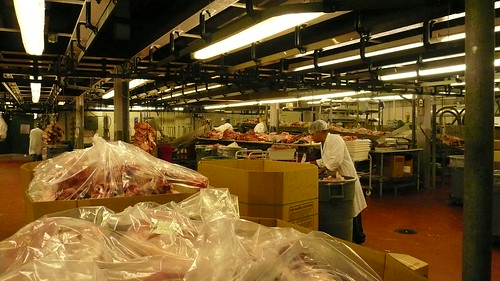I used to drink the Richard Florida Kool-aid. After all, I'm part of that "Creative Class" he talks about. It serves me well to re-sell his Kool-aid. As someone who acts as a design advocate, I see creative professionals as the innovators and entrepreneurs who will drive our future economy. Then I watched Mr. Florida (if that is his real name) on The Hour, and listened to him describe how the emerging musicians out of blue collar towns like Detroit and Montreal are replacing the traditional manufacturing sector.
"Hmm" I said to myself, "How can a handful of musicians generate the kind of economic activity of say, a single auto plant?" They can't. In just the last weeks some 2400 Canadians found out they are going to be out of work. Some are out of luck because a GM plant is closing, others because a steel plant that supplies the auto sector is closing.
What Florida avoids is that the Creative Class succeeds or fails along with traditional industries not independent of them. If a large portion of the population isn't working then that's a lot of people downloading music rather than paying for it or not going out to see theatre or going to restaurants. Restaurants are closing, fewer films are being made, more musicians are working day jobs and as advertising dollars shrink fewer designers are designing. To a degree, Florida is right. There is growth for all those he refers to as the "Creative Class" but not without some base of people growing food and making stuff. It might be old-fashioned thinking but in general, "Knowledge Workers" can only make up a certain percentage of any economy. At some point that number tops out. Am I wrong?
Jim Stanford, economist for the CAW and columnist for the Globe and Mail seems to agree. Not everybody can be an engineer, designer or artist. My brothers who teach high school, try to recognize which of their students would do well with some kind of further education, be it a degree or a certificate. Some kids would do well to get any kind of trade. Even if everyone was an artist, it wouldn't be that helpful. In Canada, visual artists make an average of $20,000 and weirdly the more education an artist has, the less they are likely to make. Not exactly a "Grey Poupon" class.
While I appreciate the support Richard Florida brings to considering the importance of innovation and design to our future, maybe we should give his kind of Kool-aid some sort of electric acid test.
Labels: business, politik


